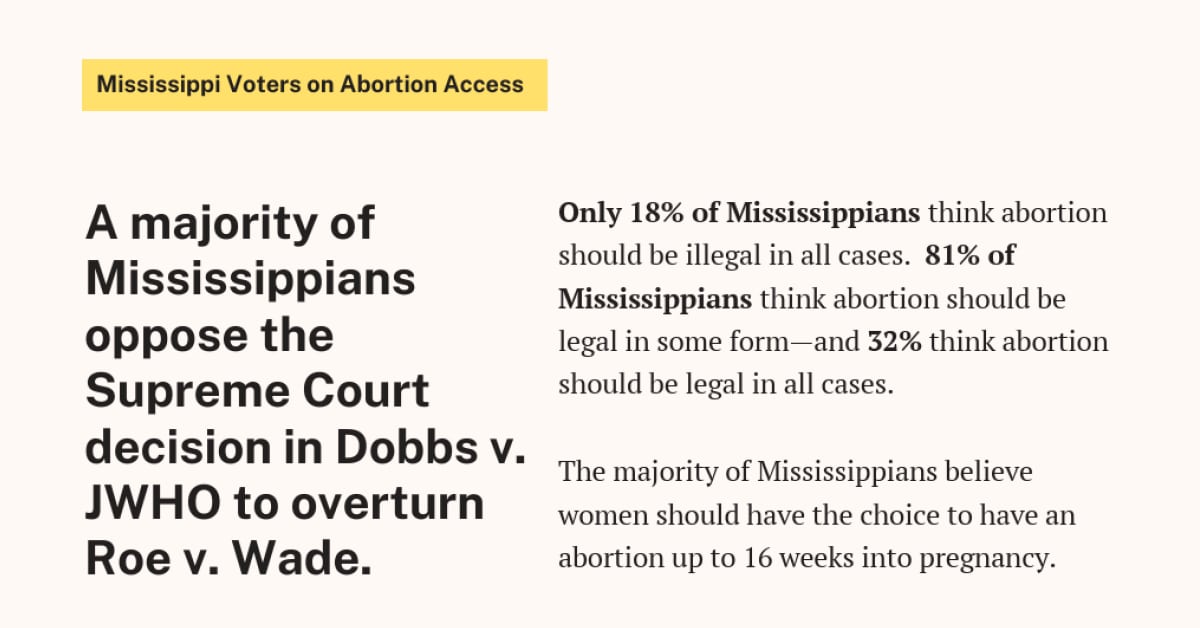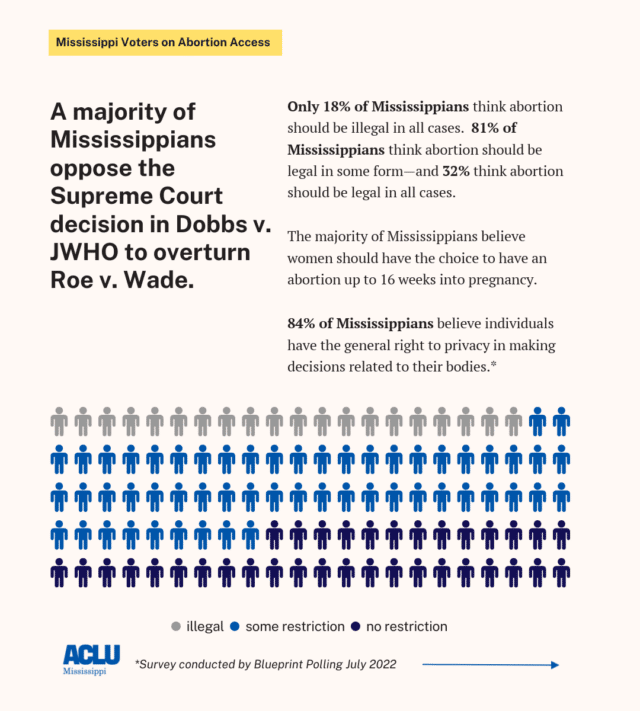Pollsters have been quick to measure public opinion in the aftermath of the Dobbs decision invalidating Roe v. Wade. We recently reported on our own survey commissioned by the ACLU that measured attitudes of MS voters—where the litigation began. We found that even in the Buckle of the Bible Belt, a majority of voters oppose the recent SCOTUS decision.
But that data point fails to measure the complexity of voters’ opinions, which will be important for progressives messaging on this matter in the fall.
A decade ago we helped fight off a Personhood Amendment in MS. The polling and focus groups back then offered lessons that this most recent survey confirms are still applicable. Here’s our starting point for our clients messaging on reproductive rights in November.
Take good polling at face value but never assume voters fall neatly into any of the three camps (Abortion on demand/abortion with some restrictions/no abortion ever):
- Remember that swing voters are cross pressured.
- Qualitative (focus group) research is essential to finding the best way to frame the messaging in your locale.
- The cognitive dissonance suggested in the polling crosstabs and the focus group narratives is real.
- Voter opinions on abortion were rarely formed in the last election cycle. One academic study looking at decades of data found two factors in one’s childhood and youth had more impact ago than anything in your adult life:
- Attitudes of your mother toward gender specific roles in the household/workplace
- Your own church attendance as a youth.
- In the Post Roe v. Wade world, the conversation will continue to evolve, and likely in a way that benefits progressives.
- The dog has caught the car it was chasing. The GOP-run legislatures will find it difficult to move beyond Bumper Sticker solutions now that SCOTUS has opened the door to more invasions of privacy. The most punitive measures directed toward women and health care workers have little widespread public support, even among Republicans. Indeed, ALEC—the wellspring for right wing legislative proposals — is silent on what to do next.
- For the persuadable voter, this debate has shifted from an easily avoidable, theoretical right-to-privacy discussion to the in-your-face realities of forced pregnancy for many women and threats of criminal prosecution for others. The wider the realization of the Post Roe reality, the better our chances in November.



